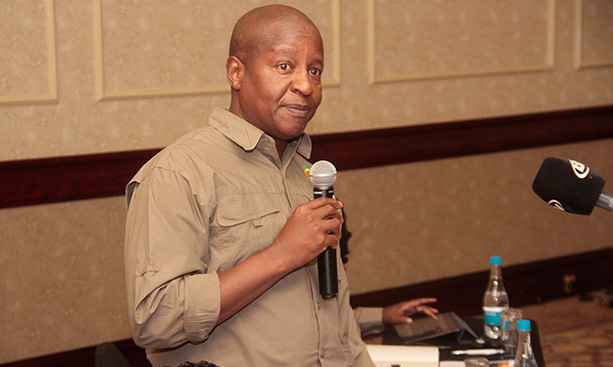· Resorts to innovative farming techniques
· BAMB revenues 14% up
· Strong collections recovers over P120m
The Botswana Marketing Board (BAMB) CEO, Leonard Morakaladi says prolonged droughts that result with low harvest has left them with no option but to resort to innovation and digitalisation approaches towards farming to mitigate the challenges.
Morakaladi said this when giving an overview of BAMB financial results for the 2019/20 which showed that the organisation’s total revenues were up 14.9% despite the low harvest yields.
He said the organisation has benchmarked in Israel and Brazil on the innovative agricultural processes to counter unpredictable climate change conditions like droughts.
He cited the drone breakthrough project in the Pandamatenga farms as part of their innovative interventions.
According to Morakaladi, the drone project will help to fight infestation of destructive pests such as Quelea Bird (Thaga) and antelopes which are big problems to farmers.
Another form of technology disruption is in pests and diseases surveillance comprising of soil mapping, Internet of Things and Macro Agricultural Intelligence.
“The current farming environment is faced with lot of challenges that results in low yield production, hence forcing farmers to import for supplement abroad. We need to adopt new farming technologies for long term sustainability,” said Morakaladi.
With regard to live stock management the laser ear tag labeling technology for branding livestock has been introduced and services are said to be available across all BAMB branches.
Despite challenges, Morakaladi said the profits went up because of strengthened relationships with key clients.
Gearings reduced by 40% while the receivables also declined by 25% with provisional profit of P7.7 million recorded.
BAMB, according to Morakaladi, also recovered over P120 million due to strengthened collections. Credit exposure decreased from P278 million to P165 million.
He said the board focused its energies and all available cash resources towards repayment of its credit facilities with lenders. Moreover, the grain purchases were mainly driven by maize accounting to 69% of sale. He said due to low production because of drought, Botswana is likely to experience a serious food shortage.
